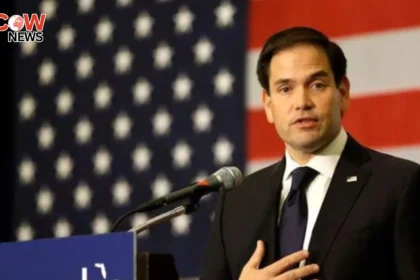In a landmark decision, the Lahore High Court (LHC) has ordered the immediate release of Zartaj Gul, a prominent leader of the Pakistan Tehreek-e-Insaf (PTI). The ruling comes amid heightened political tensions in the country, as the PTI has been facing increasing scrutiny and legal challenges in the wake of ongoing confrontations with the current government. Zartaj Gul’s release is a significant victory for the PTI, which has repeatedly condemned what it views as politically motivated arrests and persecution of its members.
The court’s decision has not only brought relief to Gul’s family and supporters but has also sent ripples through Pakistan’s political landscape. This ruling is being closely watched as it reflects the shifting dynamics of power between the judiciary and the executive in Pakistan.
The Arrest of Zartaj Gul: A Timeline of Events
Zartaj Gul, a former Minister of State for Climate Change and a high-ranking PTI official, was arrested earlier this year on charges that many within her party claim were politically motivated. Gul, who has been an outspoken critic of the current government, was taken into custody as part of what the PTI has described as a crackdown on opposition members.
Her arrest came amid a broader wave of detentions targeting PTI leaders, activists, and supporters. The charges against her were related to incitement, allegedly contributing to political unrest and dissent against the ruling regime. Many of her fellow PTI members argued that her arrest was part of a systematic effort to stifle political opposition and silence dissent.
The legal battle for her release began shortly after her arrest, with PTI lawyers filing petitions challenging the grounds of her detention. Over the past few months, the court hearings have been closely monitored by both national and international observers, as her case became emblematic of the PTI’s broader struggle against what it perceives as state oppression.
The Court’s Ruling: A Major Legal Victory
The Lahore High Court’s ruling in favor of Zartaj Gul marks a critical juncture in her case. The court ordered her immediate release, citing insufficient evidence and procedural flaws in her arrest and detention. According to reports, the court found that the charges against her were unsubstantiated, and there was no concrete evidence that justified her continued detention.
This decision has been hailed as a significant legal win for Gul and the PTI, but it also raises questions about the conduct of law enforcement and the government’s role in the arrest. For many PTI supporters, this ruling is a vindication of their claims that the charges against Gul were politically motivated and part of a broader agenda to marginalize the party.
The court’s decision to release her not only underscores the judiciary’s role in ensuring justice but also highlights the growing tension between the judiciary and the executive branch of government. In recent months, Pakistan’s courts have become increasingly involved in cases concerning political leaders, opposition figures, and civil liberties. This ruling is expected to have broader implications for similar cases involving other PTI leaders who are still facing legal challenges.
Zartaj Gul’s Political Journey: From PTI Leader to Political Target
Zartaj Gul is no stranger to political controversy. As a senior PTI leader and former federal minister, she has been at the forefront of her party’s political campaigns and policy initiatives. Known for her strong stance on climate change and environmental issues, Gul gained prominence within the PTI for her work as the Minister of State for Climate Change.
Her rise in politics has been marked by her vocal support for the PTI’s vision of a “Naya Pakistan” (New Pakistan), and she has been a key figure in mobilizing grassroots support for the party. Over the years, Gul has built a reputation as a dedicated and passionate advocate for her constituency in Dera Ghazi Khan, as well as for the environment.
However, her political journey has also made her a target for criticism and, as evidenced by her arrest, legal challenges. Her outspokenness against the government and her active role in PTI’s opposition activities made her one of the most visible and high-profile leaders to be detained.
Many political analysts believe that Gul’s arrest was intended to send a message to other PTI leaders, signaling that the government would not tolerate dissent. However, her release could now embolden other PTI members who have been facing similar charges or arrests.
The Broader Political Context: A Nation Divided
Zartaj Gul’s arrest and subsequent release come at a time of intense political strife in Pakistan. The PTI, led by former Prime Minister Imran Khan, has been in a protracted struggle with the current government, which came to power after Khan’s ouster through a parliamentary vote of no-confidence. Since then, the political climate in Pakistan has become increasingly polarized, with the PTI claiming that it is being unfairly targeted by the government through arrests, legal challenges, and restrictions on political activities.
The crackdown on PTI leaders, including the arrest of Imran Khan himself earlier this year, has sparked nationwide protests, rallies, and civil unrest. PTI supporters have frequently clashed with law enforcement, leading to further arrests and heightened tensions across the country.
In this politically charged environment, the role of the judiciary has become more critical than ever. The courts have been called upon to adjudicate a growing number of politically sensitive cases, from the disqualification of politicians to the arrests of opposition leaders. While the judiciary is constitutionally independent, its rulings have often been viewed through a political lens, with both the government and opposition accusing it of bias.
Zartaj Gul’s case is just one of many legal battles that have emerged from this broader political struggle. Her release could have wider repercussions for other PTI leaders who are still fighting their own legal battles, including prominent figures such as Fawad Chaudhry, Shah Mehmood Qureshi, and Shireen Mazari, all of whom have faced legal challenges since Khan’s removal from office.
The Reaction: PTI Celebrates, Government Responds
Following the court’s decision, PTI leaders and supporters took to social media to express their joy and relief at Zartaj Gul’s release. Party leaders lauded the ruling as a victory for justice and a sign that the judiciary is standing up against what they perceive as government overreach. Imran Khan, who remains the face of the PTI despite his own legal battles, tweeted his support for Gul, calling her release a “win for democracy and justice.”
PTI spokespersons have also used this moment to reiterate their claims of political victimization. They argue that the arrests of party members like Gul are part of a deliberate strategy by the government to weaken the PTI ahead of potential future elections. The party’s legal team has vowed to continue fighting for the release of other detained PTI leaders and has expressed confidence that the courts will rule in their favor.
On the government’s side, the reaction has been more measured. While the authorities have not publicly commented on the court’s ruling, officials within the ruling coalition have expressed frustration over the judiciary’s involvement in what they see as politically sensitive matters. Some government members have hinted that the judiciary’s frequent rulings in favor of the PTI may be undermining the executive’s ability to govern effectively.
The ruling could also have implications for law enforcement agencies, particularly those involved in the arrest and detention of political leaders. The Punjab police, which was responsible for Zartaj Gul’s arrest, may face increased scrutiny in the coming days, especially if the court’s ruling leads to further investigations into how her arrest was conducted.
Zartaj Gul’s Release: What’s Next?
With Zartaj Gul now released, the political focus will likely shift to what comes next for the PTI leader. Gul is expected to make a public appearance soon, with many anticipating that she will speak out against the government and law enforcement’s handling of her case. Her release is also likely to galvanize PTI supporters, who have been eagerly awaiting positive news amid the party’s ongoing struggles.
Gul’s return to the political stage will likely see her resuming her role as one of the PTI’s key figures. However, her legal troubles may not be entirely over. It is possible that the government could seek to appeal the Lahore High Court’s ruling or pursue other charges against her in the future.
For now, though, Zartaj Gul’s release is being celebrated as a much-needed victory for the PTI, a party that has faced relentless pressure and opposition over the past year. Her case has become emblematic of the broader battle between the PTI and the ruling coalition, a battle that shows no signs of abating anytime soon.
#ZartajGul #PTI #LahoreHighCourt #PakistanPolitics #PoliticalPersecution #ImranKhan #PTIVictory #JudicialIndependence #PakistaniCourts #PoliticalTensions







